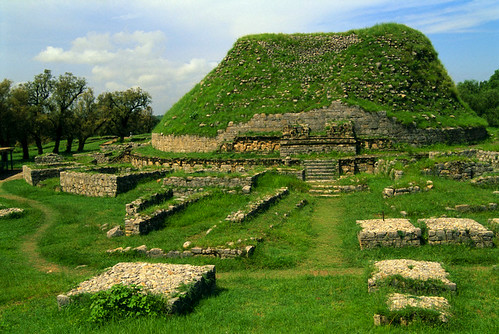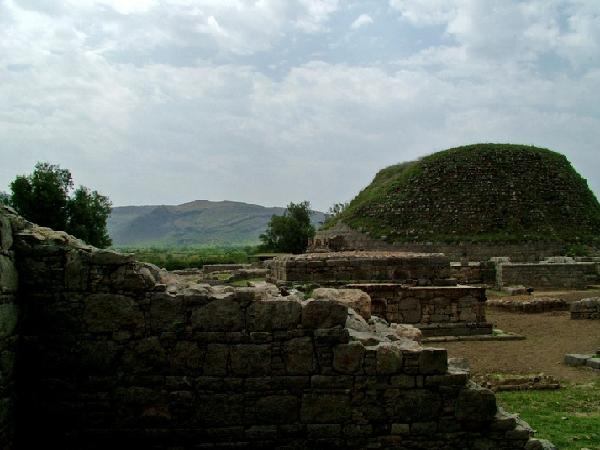List of Muslim scientists throughout the ages
Islamic science has played a significant role in the history of science. There have been hundreds of notable Muslim scientists that have made a great contribution to civilization and society. The following is an incomplete list of notable Muslim scientists.
Contents
[hide]
* 1 Astronomers and astrophysicists
* 2 Chemists and alchemists
* 3 Economists and social scientists
* 4 Geographers and earth scientists
* 5 Mathematicians
* 6 Biologists, neuroscientists, and psychologists
* 7 Physicians and surgeons
* 8 Physicists and engineers
* 9 Political scientists
* 10 Other scientists and inventors
* 11 References
Astronomers and astrophysicists
* Ibrahim al-Fazari
* Muhammad al-Fazari
* Al-Khwarizmi, mathematician
* Ja'far ibn Muhammad Abu Ma'shar al-Balkhi (Albumasar)
* Al-Farghani
* Banū Mūsā (Ben Mousa)
o Ja'far Muhammad ibn Mūsā ibn Shākir
o Ahmad ibn Mūsā ibn Shākir
o Al-Hasan ibn Mūsā ibn Shākir
* Al-Majriti
* Muhammad ibn Jābir al-Harrānī al-Battānī (Albatenius)
* Al-Farabi (Abunaser)
* Abd Al-Rahman Al Sufi
* Abu Sa'id Gorgani
* Kushyar ibn Labban
* Abū Ja'far al-Khāzin
* Al-Mahani
* Al-Marwazi
* Al-Nayrizi
* Al-Saghani
* Al-Farghani
* Abu Nasr Mansur
* Abū Sahl al-Qūhī (Kuhi)
* Abu-Mahmud al-Khujandi
* Abū al-Wafā' al-Būzjānī
* Ibn Yunus
* Ibn al-Haytham (Alhacen)
* Abū Rayhān al-Bīrūnī
* Avicenna(Ibn Sīnā )
* Abū Ishāq Ibrāhīm al-Zarqālī (Arzachel)
* Omar Khayyám
* Al-Khazini
* Ibn Bajjah (Avempace)
* Ibn Tufail (Abubacer)
* Nur Ed-Din Al Betrugi (Alpetragius)
* Averroes
* Al-Jazari
* Sharaf al-Dīn al-Tūsī
* Anvari
* Mo'ayyeduddin Urdi
* Nasir al-Din Tusi
* Qutb al-Din al-Shirazi
* Ibn al-Shatir
* Shams al-Dīn al-Samarqandī
* Jamshīd al-Kāshī
* Ulugh Beg, also a mathematician
* Taqi al-Din Muhammad ibn Ma'ruf, Ottoman astronomer
* Ahmad Nahavandi
* Haly Abenragel
* Abolfadl Harawi
Chemists and alchemists
Further information: Alchemy (Islam)
* Khalid ibn Yazid (Calid)
* Jafar al-Sadiq
* Jābir ibn Hayyān (Geber), father of chemistry[1][2][3]
* Abbas Ibn Firnas (Armen Firman)
* Al-Kindi (Alkindus)
* Al-Majriti
* Ibn Miskawayh
* Abū Rayhān al-Bīrūnī
* Avicenna
* Al-Khazini
* Nasir al-Din Tusi
* Ibn Khaldun
* Salimuzzaman Siddiqui
* Al-Khwārizmī, Father of Algebra, (Mathematics)
* Ahmed H. Zewail, Nobel Prize in Chemistry, 1999[4]
* Mostafa El-Sayed
* Atta ur Rahman, leading scholar in the field of Natural Product Chemistry
Economists and social scientists
Further information: Islamic sociology, Early Muslim sociology, and Islamic economics in the world
See also: List of Muslim historians and Historiography of early Islam
* Abu Hanifa an-Numan (699-767), Islamic jurisprudence scholar
* Abu Yusuf (731-798), Islamic jurisprudence scholar
* Al-Saghani (d. 990), one of the earliest historians of science[5]
* Shams al-Mo'ali Abol-hasan Ghaboos ibn Wushmgir (Qabus) (d. 1012), economist
* Abū Rayhān al-Bīrūnī (973-1048), considered the "first anthropologist"[6] and father of Indology[7]
* Ibn Sina (Avicenna) (9801037), economist
* Ibn Miskawayh (b. 1030), economist
* Al-Ghazali (Algazel) (10581111), economist
* Al-Mawardi (10751158), economist
* Nasīr al-Dīn al-Tūsī (Tusi) (12011274), economist
* Ibn al-Nafis (12131288), sociologist
* Ibn Taymiyyah (12631328), economist
* Ibn Khaldun (13321406), forerunner of social sciences[8] such as demography,[9] cultural history,[10] historiography,[11] philosophy of history,[12] sociology[9][12] and economics[13][14]
* Al-Maqrizi (13641442), economist
* Akhtar Hameed Khan, Pakistani social scientist; pioneer of microcredit
* Muhammad Yunus, Nobel Prize winner Bangladeshi economist; pioneer of microfinance
* Shah Abdul Hannan, Pioneer of Islamic Banking in South Asia
* Mahbub ul Haq, Pakistani economist; developer of Human Development Index and founder of Human Development Report[15][16]
Geographers and earth scientists
Further information: Muslim Agricultural Revolution
* Al-Masudi, the "Herodotus of the Arabs", and pioneer of historical geography[17]
* Al-Kindi, pioneer of environmental science[18]
* Ibn Al-Jazzar
* Al-Tamimi
* Al-Masihi
* Ali ibn Ridwan
* Muhammad al-Idrisi, also a cartographer
* Ahmad ibn Fadlan
* Abū Rayhān al-Bīrūnī, father of geodesy,[6][9] considered the first geologist and "first anthropologist"[6]
* Avicenna
* Abd al-Latif al-Baghdadi
* Averroes
* Ibn al-Nafis
* Ibn Jubayr
* Ibn Battuta
* Ibn Khaldun
* Piri Reis
* Evliya Çelebi
Mathematicians
Further information: Islamic mathematics: Biographies
* Al-Hajjāj ibn Yūsuf ibn Matar
* Khalid ibn Yazid (Calid)
* Muhammad ibn Mūsā al-Khwārizmī (Algorismi) - father of algebra[19] and algorithms[20]
* 'Abd al-Hamīd ibn Turk
* Abū al-Hasan ibn Alī al-Qalasādī (14121482), pioneer of symbolic algebra[21]
* Abū Kāmil Shujā ibn Aslam
* Al-Abbās ibn Said al-Jawharī
* Al-Kindi (Alkindus)
* Banū Mūsā (Ben Mousa)
o Ja'far Muhammad ibn Mūsā ibn Shākir
o Al-Hasan ibn Mūsā ibn Shākir
* Al-Khwarizmi
* Al-Mahani
* Ahmed ibn Yusuf
* Al-Majriti
* Muhammad ibn Jābir al-Harrānī al-Battānī (Albatenius)
* Al-Farabi (Abunaser)
* Al-Khalili
* Al-Nayrizi
* Abū Ja'far al-Khāzin
* Brethren of Purity
* Abu'l-Hasan al-Uqlidisi
* Al-Saghani
* Abū Sahl al-Qūhī
* Abu-Mahmud al-Khujandi
* Abū al-Wafā' al-Būzjānī
* Ibn Sahl
* Al-Sijzi
* Ibn Yunus
* Abu Nasr Mansur
* Kushyar ibn Labban
* Al-Karaji
* Ibn al-Haytham (Alhacen/Alhazen)
* Abū Rayhān al-Bīrūnī
* Ibn Tahir al-Baghdadi
* Al-Nasawi
* Al-Jayyani
* Abū Ishāq Ibrāhīm al-Zarqālī (Arzachel)
* Al-Mu'taman ibn Hud
* Omar Khayyám
* Al-Khazini
* Ibn Bajjah (Avempace)
* Al-Ghazali (Algazel)
* Al-Marrakushi
* Al-Samawal
* Averroes
* Avicenna
* Hunayn ibn Ishaq
* Ibn al-Banna'
* Ibn al-Shatir
* Ja'far ibn Muhammad Abu Ma'shar al-Balkhi (Albumasar)
* Jamshīd al-Kāshī
* Kamāl al-Dīn al-Fārisī
* Muḥyi al-Dīn al-Maghribī
* Maryam Mirzakhani
* Mo'ayyeduddin Urdi
* Muhammad Baqir Yazdi
* Nasir al-Din al-Tusi, 13th century Persian mathematician and philosopher
* Qāḍī Zāda al-Rūmī
* Qutb al-Din al-Shirazi
* Shams al-Dīn al-Samarqandī
* Sharaf al-Dīn al-Tūsī
* Taqi al-Din Muhammad ibn Ma'ruf
* Ulugh Beg
* Cumrun Vafa
Biologists, neuroscientists, and psychologists
Further information: Islamic psychological thought
* Ibn Sirin (654728), author of work on dreams and dream interpretation[22]
* Al-Kindi (Alkindus), pioneer of psychotherapy and music therapy[23]
* Ali ibn Sahl Rabban al-Tabari, pioneer of psychiatry, clinical psychiatry and clinical psychology[24]
* Ahmed ibn Sahl al-Balkhi, pioneer of mental health,[25] medical psychology, cognitive psychology, cognitive therapy, psychophysiology and psychosomatic medicine[26]
* Al-Farabi (Alpharabius), pioneer of social psychology and consciousness studies[27]
* Ali ibn Abbas al-Majusi (Haly Abbas), pioneer of neuroanatomy, neurobiology and neurophysiology[27]
* Abu al-Qasim al-Zahrawi (Abulcasis), pioneer of neurosurgery[28]
* Ibn al-Haytham (Alhazen), founder of experimental psychology, psychophysics, phenomenology and visual perception[29]
* Abū Rayhān al-Bīrūnī, pioneer of reaction time[30]
* Avicenna (Ibn Sina), pioneer of neuropsychiatry,[31] thought experiment, self-awareness and self-consciousness[32]
* Ibn Zuhr (Avenzoar), pioneer of neurology and neuropharmacology[28]
* Averroes, pioneer of Parkinson's disease[28]
* Ibn Tufail, pioneer of tabula rasa and nature versus nurture[33]
* Mir Sajad,Neuroscientist and pioneer in neuroinflammation and neurogenesis.[34][35]
* Choudhury Mahmood Hasan
Physicians and surgeons
Main article: Muslim doctors
Further information: Islamic medicine
* Khalid ibn Yazid (Calid)
* Jafar al-Sadiq
* Shapur ibn Sahl (d. 869), pioneer of pharmacy and pharmacopoeia[36]
* Al-Kindi (Alkindus) (801-873), pioneer of pharmacology[37]
* Abbas Ibn Firnas (Armen Firman) (810-887)
* Al-Jahiz, pioneer of natural selection
* Ali ibn Sahl Rabban al-Tabari, pioneer of medical encyclopedia[24]
* Ahmed ibn Sahl al-Balkhi
* Ishaq bin Ali al-Rahwi (854931), pioneer of peer review and medical peer review[38]
* Al-Farabi (Alpharabius)
* Ibn Al-Jazzar (circa 898-980)
* Abul Hasan al-Tabari - physician
* Ali ibn Sahl Rabban al-Tabari - physician
* Ali ibn Abbas al-Majusi (d. 994), pioneer of obstetrics and perinatology[39]
* Abu Gaafar Amed ibn Ibrahim ibn abi Halid al-Gazzar (10th century), pioneer of dental restoration[40]
* Abu al-Qasim al-Zahrawi (Abulcasis) - father of modern surgery, and pioneer of neurosurgery,[28] craniotomy,[39] hematology[41] and dental surgery[42]
* Ibn al-Haytham (Alhacen), pioneer of eye surgery, visual system[43] and visual perception[44]
* Abū Rayhān al-Bīrūnī
* Avicenna (Ibn Sina) (980-1037) - father of modern medicine,[45] founder of Unani medicine,[41] pioneer of experimental medicine, evidence-based medicine, pharmaceutical sciences, clinical pharmacology,[46] aromatherapy,[47] pulsology and sphygmology,[48] and also a philosopher
* Hakim Syed Zillur Rahman, physician of Unani medicine
* Ibn Miskawayh
* Ibn Zuhr (Avenzoar) - father of experimental surgery,[49] and pioneer of experimental anatomy, experimental physiology, human dissection, autopsy[50] and tracheotomy[51]
* Ibn Bajjah (Avempace)
* Ibn Tufail (Abubacer)
* Averroes
* Ibn al-Baitar
* Ibn Jazla
* Nasir al-Din Tusi
* Ibn al-Nafis (12131288), father of circulatory physiology, pioneer of circulatory anatomy,[52] and founder of Nafisian anatomy, physiology,[53] pulsology and sphygmology[54]
* Ibn al-Quff (12331305), pioneer of embryology[39]
* Kamāl al-Dīn al-Fārisī
* Ibn al-Khatib (13131374)
* Mansur ibn Ilyas
* Saghir Akhtar - pharmacist
* Syed Ziaur Rahman, pharmacologist
* Toffy Musivand
* Muhammad B. Yunus, the "father of our modern view of fibromyalgia"[55]
* Sheikh Muszaphar Shukor, pioneer of biomedical research in space[56][57]
* Hulusi Behçet, known for the discovery of Behçet's disease
* Ibrahim B. Syed - radiologist
* Mehmet Öz, cardiothoracic surgeon
* Abdul Qayyum Rana, Neurologist known for his work on Parkinson's disease
Physicists and engineers
Further information: Islamic physics
* Jafar al-Sadiq, 8th century
* Banū Mūsā (Ben Mousa), 9th century
o Ja'far Muhammad ibn Mūsā ibn Shākir
o Ahmad ibn Mūsā ibn Shākir
o Al-Hasan ibn Mūsā ibn Shākir
* Abbas Ibn Firnas (Armen Firman), 9th century
* Al-Saghani, 10th century
* Abū Sahl al-Qūhī (Kuhi), 10th century
* Ibn Sahl, 10th century
* Ibn Yunus, 10th century
* Al-Karaji, 10th century
* Ibn al-Haytham (Alhacen), 11th century Iraqi scientist, father of optics,[58] pioneer of scientific method[59] and experimental physics,[60] considered the "first scientist"[61]
* Abū Rayhān al-Bīrūnī, 11th century, pioneer of experimental mechanics[62]
* Avicenna, 11th century
* Al-Khazini, 12th century
* Ibn Bajjah (Avempace), 12th century
* Hibat Allah Abu'l-Barakat al-Baghdaadi (Nathanel), 12th century
* Averroes, 12th century Andalusian mathematician, philosopher and medical expert
* Al-Jazari, 13th century civil engineer, father of robotics,[3]
* Nasir al-Din Tusi, 13th century
* Qutb al-Din al-Shirazi, 13th century
* Kamāl al-Dīn al-Fārisī, 13th century
* Ibn al-Shatir, 14th century
* Taqi al-Din Muhammad ibn Ma'ruf, 16th century
* Hezarfen Ahmet Celebi, 17th century
* Lagari Hasan Çelebi, 17th century
* Sake Dean Mahomet, 18th century
* Fazlur Khan, 20th century Bangladeshi mechanician
* Mahmoud Hessaby, 20th century Iranian physicist
* Ali Javan, 20th century Iranian physicist
* Bacharuddin Jusuf Habibie, 20th century Indonesian aerospace engineer and president
* Abdul Kalam, Indian aeronautical engineer and nuclear scientist
* Mehran Kardar, Iranian theoretical physicist
* Cumrun Vafa, Iranian mathematical physicist
* Abdus Salam, Ahmadiyya (non-Muslim under Pakistani law) Pakistani theoretical physicist and Nobel Laureate,
* Nima Arkani-Hamed, American-born Iranian physicist
* Abdel Nasser Tawfik, Egyptian-born German particle physicist
* Munir Nayfeh Palestinian-American particle physicist
* Riazuddin, Pakistani theoretical physicist
* Abdul Qadeer Khan, Pakistani nuclear scientist
* Ali Musharafa, Egyptian nuclear physicist
* Sameera Moussa, Egyptian nuclear physicist
* Munir Ahmad Khan, Father of Pakistan's nuclear program
* Kerim Kerimov, a founder of Soviet space program, a lead architect behind first human spaceflight (Vostok 1), and the lead architect of the first space stations (Salyut and Mir)[63][64]
* Farouk El-Baz, a NASA scientist involved in the first Moon landings with the Apollo program[65]
Political scientists
* Syed Qutb
* Mohammad Baqir al-Sadr
* Abul Ala Maududi
* Hasan al-Turabi
* Hassan al-Banna
* Mohamed Hassanein Heikal
* M. A. Muqtedar Khan
* Rashid al-Ghannushi
Other scientists and inventors
* Azizul Haque
List of Muslim scientists - Wikipedia, the free encyclopedia













 or b4 even...
or b4 even...